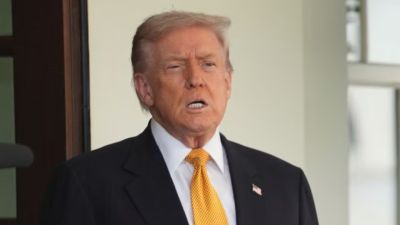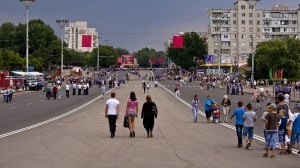Shanghai neons beckon
Prime Minister Vajpayee was shanghaied to Luoyang by the Buddhist connection this morning. Along with him went Special Representative on the...

Prime Minister Vajpayee was shanghaied to Luoyang by the Buddhist connection this morning. Along with him went Special Representative on the border talks with China Brajesh Mishra, External Affairs Minister Yashwant Sinha, Foreign Secretary Kanwal Sibal and a bevy of officials. The rest of the delegation, meanwhile, flew to a city that has been synonymous with the Opium Wars at least since 1842, and since with a reputation of living on the edge.
Shanghai. Sitting squat on the Yellow Sea and on the same latitude as Lahore, Lhasa, Cairo and Basra. A city pulsating with such nervous energy that it makes Beijing look like a provincial matriarch. Flyovers some 50-km long circumscribing the city like a rainbow, a Pudong skyline across the Huangpu River that puts Manhattan to shame and an annual FDI of $5 billion that is nearly double the $3 billion figure that India attracts every year.
Shanghai’s success simply blows the mind. To think that around the time the Babri Masjid was demolished, a man called Zhu Rongji was elected mayor of Shanghai and look at the distances both nations have travelled since. Under the modernisations initiated by Deng Xiaoping, Zhu in 1989 decided to pull Shanghai out of the sleep it was in during revolutionary years. Communism was shrugged off like a second skin. Capitalism, with Chinese characteristics, was back with a bang.
The frenetic pace, the dedication to get rich, the quiet self-assurance. The Shanghai miracle is hardly a decade old. Across the Pudong nightline, neon signs announce Western and Japanese labels, as if in vindication of the affronts heaped upon China barely a hundred years ago. The Grand Hyatt building is a lightning flash of glass and chrome, and the hotel starts from the 50th floor. The TV tower is probably the highest in the world and the Pudong economic zone is bigger than Singapore.
And yet, when IT & Disinvestment Minister Arun Shourie engages Shanghai’s entrepreneurs tomorrow, he will be hard put to answer why India was unable to wrap up a Bilateral Investment Protection Agreement with China on the eve or even during the ‘‘historic’’ visit of PM Vajpayee.
Turns out that both sides had argued over differences in the ‘‘national treatment’’ their businesses would receive in the other’s country. New Delhi pointed out that Beijing was not being consistent with WTO principles, although they had conceded the same to the US. Fact is, a 100-strong delegation from CII, FICCI and Assocham have accompanied the PM and all of them are to hit Shanghai’s economic nerve tomorrow.
They can’t be serious. There has been no attempt to get business together with Vajpayee on this trip to formulate a strategy that focusses on weak links in the Chinese chain. Though the PM has referred to the fact that he is ‘‘accompanied by one of the largest delegations ever’’, businessmen say they just haven’t had the opportunity to speak to him. An event scheduled for the day he leaves for Delhi, they say, would be too late.
Meanwhile, businessmen seem to have been distracted from their mission with the chambers holding separate events when a concerted effort in the ‘‘national interest’’ — a phrase much bandied about on this trip — would have assured them a greater leap forward.
Many put out analyses about the future. CII chief Anand Mahindra said he was looking at exporting car kits to China and would ask his telecom company to check out the Chinese market. FICCI’s Amit Mitra pointed out that with the Chinese growing at such a fast pace (China’s trade with the US is already a cool $100 billion), India is an ideal place to source raw material and manpower.





- 01
- 02
- 03
- 04
- 05


























